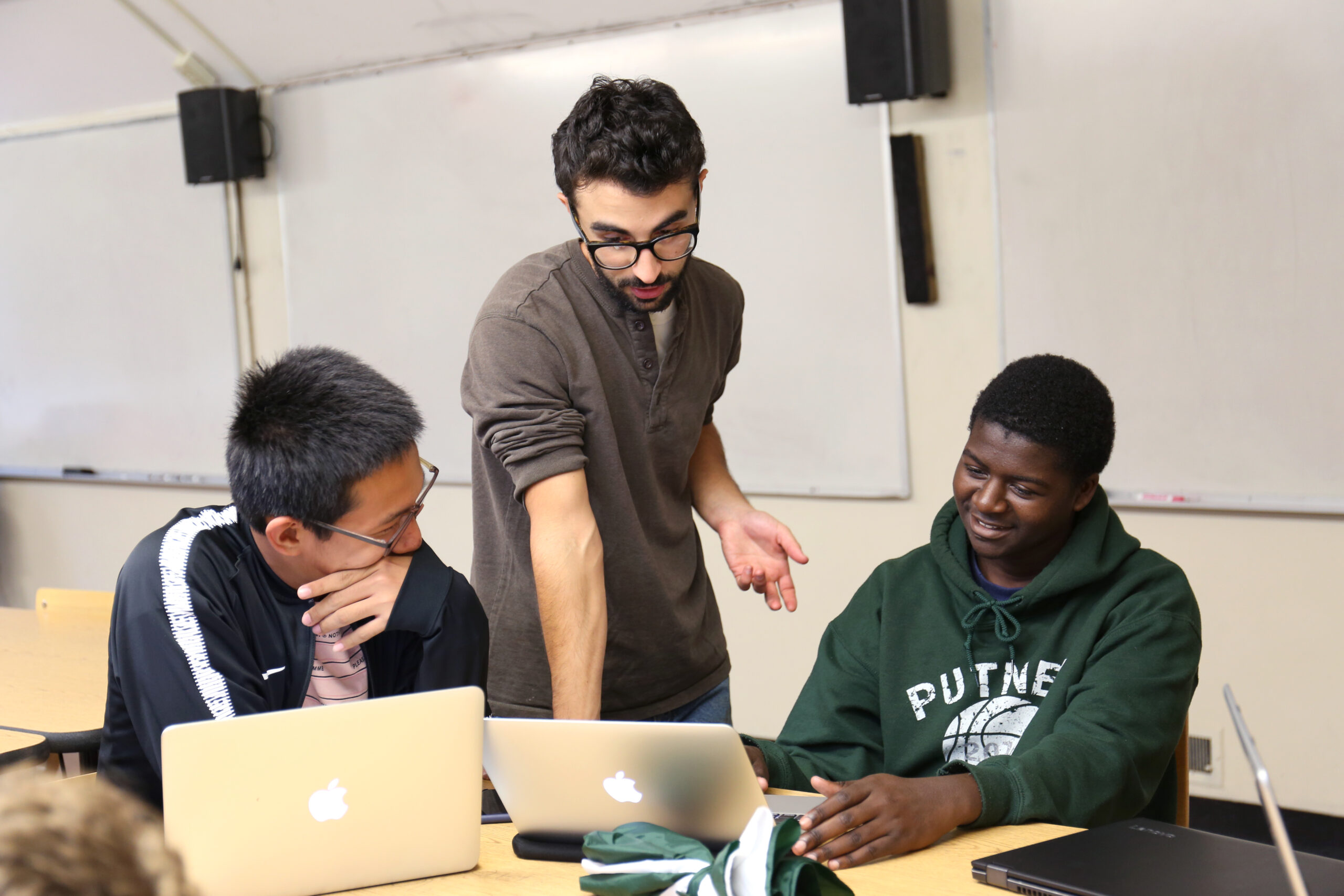Dear Parents,
As I write, students are talking with teachers about their plans for Project Week and lining up their faculty sponsors. Although Project Week doesn’t start until December 3rd (and is actually almost two weeks long), we start the planning phase early. Each student is writing a proposal for how they will spend that time, much like a grant proposal. They will spell out what they hope to learn, how they will set about learning it, what materials and resources they will use, and how they plan to schedule their time. The proposals are read by teams of teachers and are often sent back for revision before being approved, which is why it’s good to get an early start.
As most of you know, we do this twice a year, while many other students across the country are cramming for exams. It is one of the most vital elements of a Putney education, and as more and more schools are trying to include project-based learning (PBL) and experiential education in their curriculum, we are getting a lot of attention for having always done it. It requires a faculty with broad skills in many fields, and the pedagogical wisdom to know when to steer and when not to. A central piece of this is student agency – these are not the kind of projects in which a teacher presents a class with a recipe to follow to a predetermined outcome. So far this morning I’ve talked with a student who is going to write code for deciphering the output from an EKG, as part of a larger project he did in an internship; a student who will start the construction of a paramotor (yes, I had to look it up), and two students who are continuing work on a detailed plan for campus accessibility that they began last spring.
Students learn a great deal of academic content in Project Weeks, but an equal goal is learning how to successfully be one’s own boss. Executive function is the ability to assess a situation or challenge, to make a plan of how to tackle it, to translate that plan into action. It involves the capacity to monitor your progress as you go along and adjust your action accordingly, and to reflect on your success or failure in a useful way. It includes the ability to organize both materials and time. Students who get labeled ADHD are sometimes those who have more than usual difficulty with one or more of these tasks, but in reality, very few people naturally can do all these things well without practice.
One reason that adolescents often have difficulty with executive function is that many of these skills are those of the prefrontal cortex, which is responsible for the organization, decision-making, and planning, among other tasks. Although the prefrontal cortex is not fully developed until one’s early 20’s, development in the brain is shaped by what it pays attention to, and therefore curriculum which requires the practice of these skills is important. Schools which do all the planning for students, organize their work and their play, and merely require them to learn the answers to set questions do not give students the practice they need in these skills.
During Project Weeks we see great creativity and great triumphs, but even the projects that are not apparently very successful often produce as much learning. Some of your children are doing this for the first time, and we will give them plenty of advice and support. Some are masters at it already, and several are starting on a longer project that they hope to complete during a Senior Exhibition in the spring. If you are coming to pick up your child for Winter Break (dorms close at 10:00 a.m. on Sunday the 16th), please come a day early, if you can, to see some of the presentations and browse in the galleries on Saturday, December 15.
I’ve been here a long time and they still delight and astonish me.
All the best to all of you,

Emily H. Jones
Head of School


